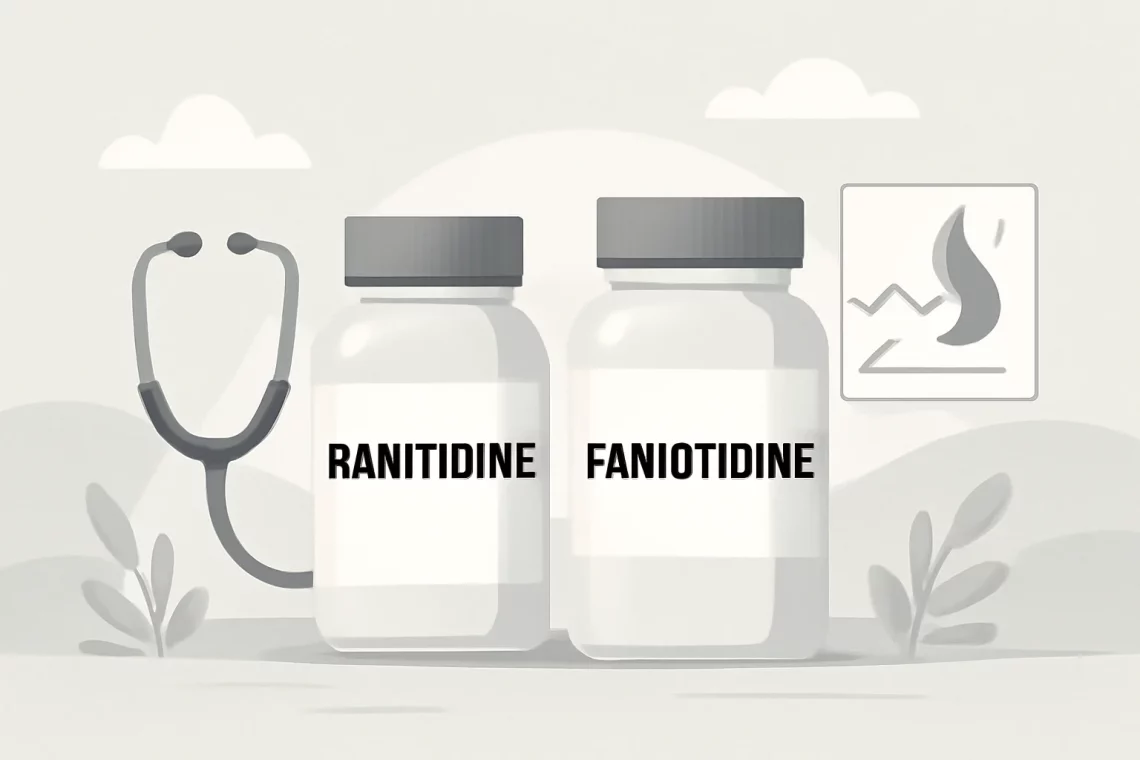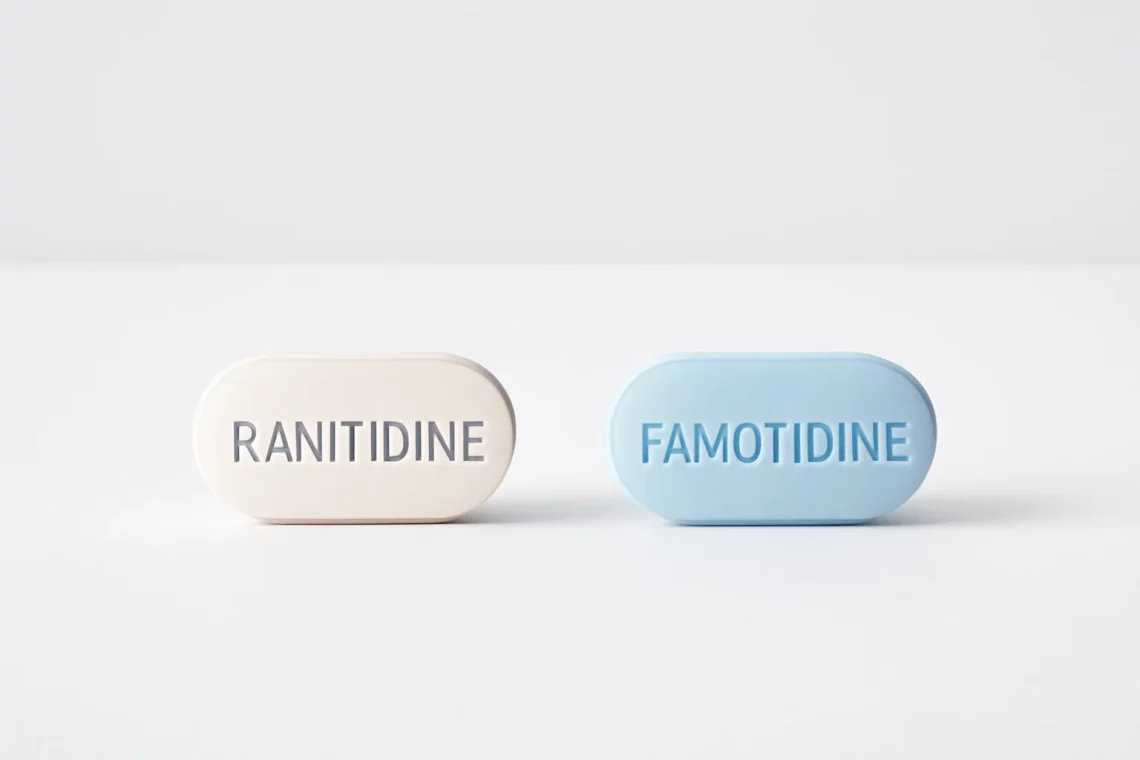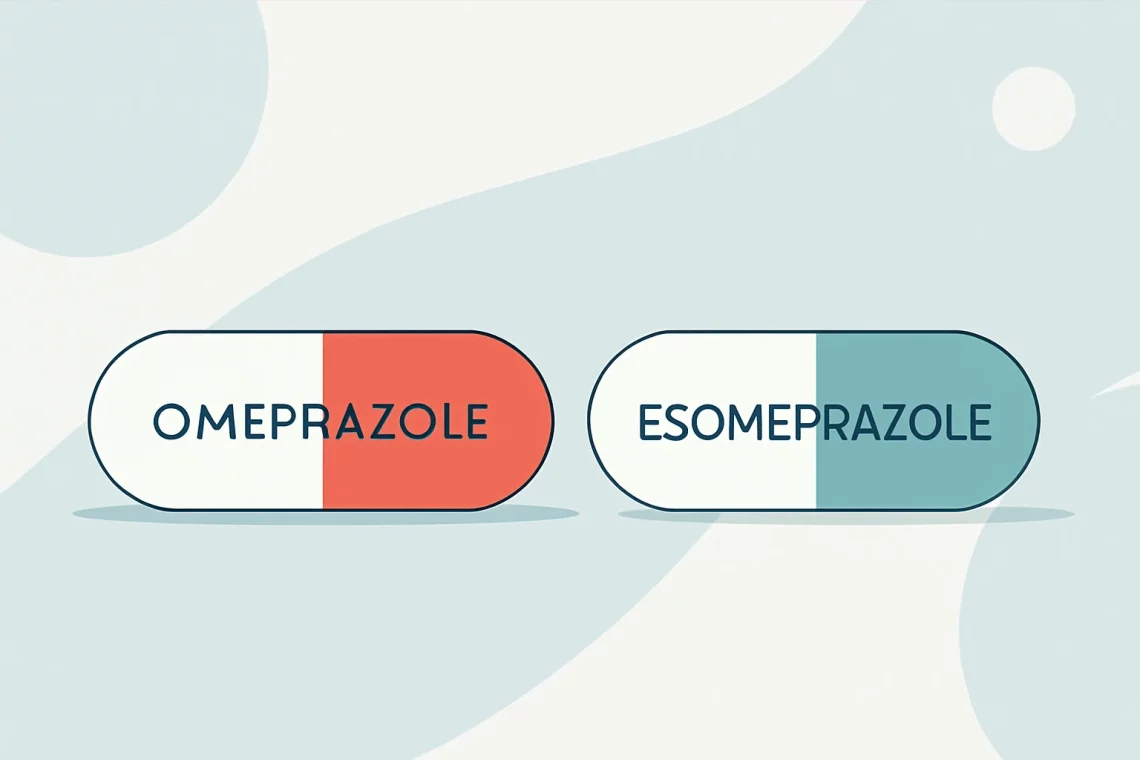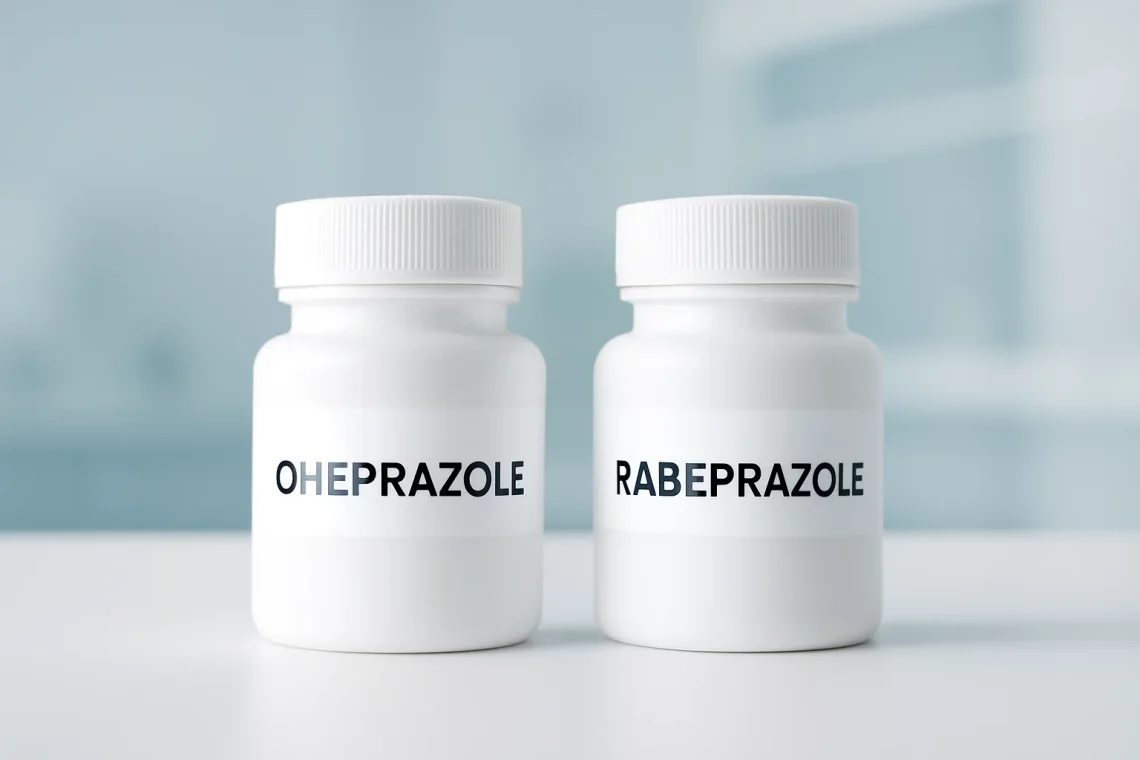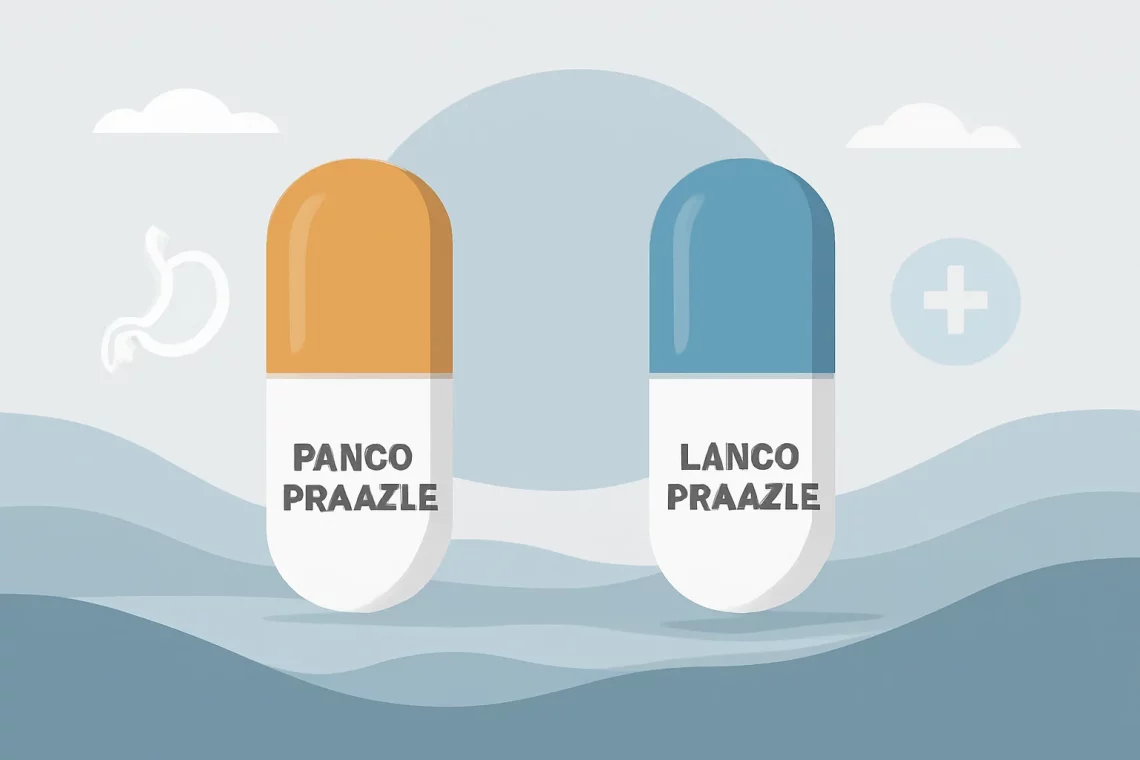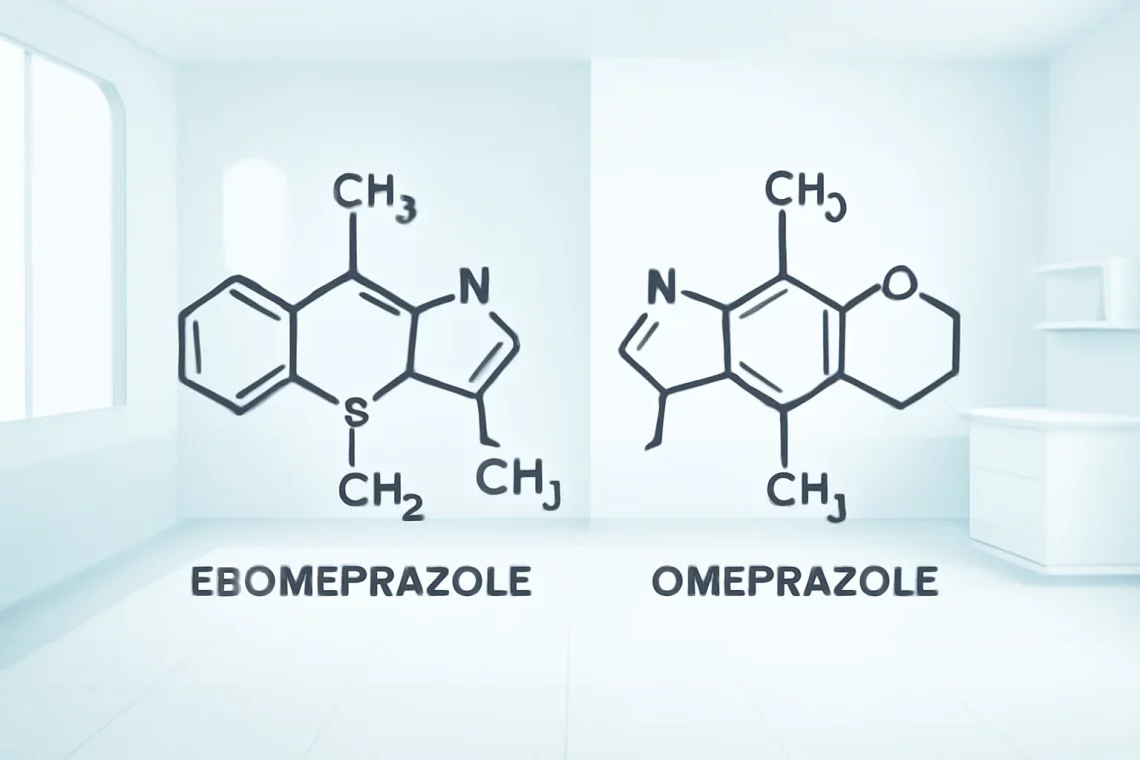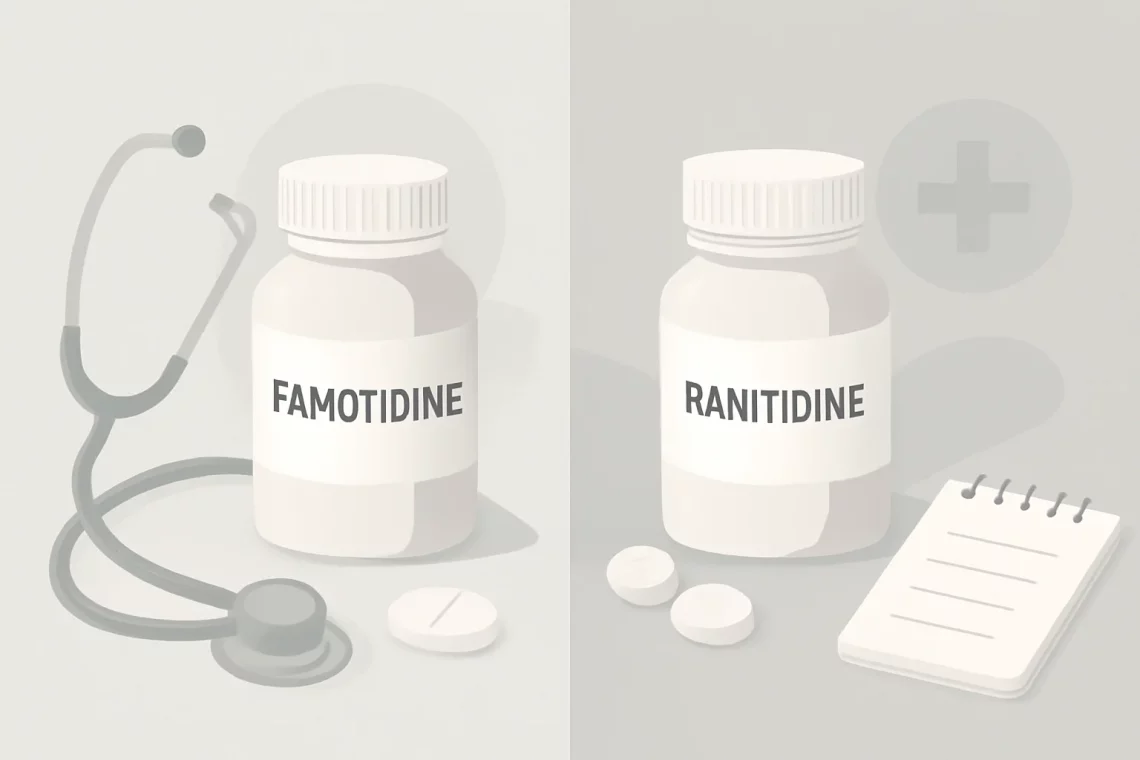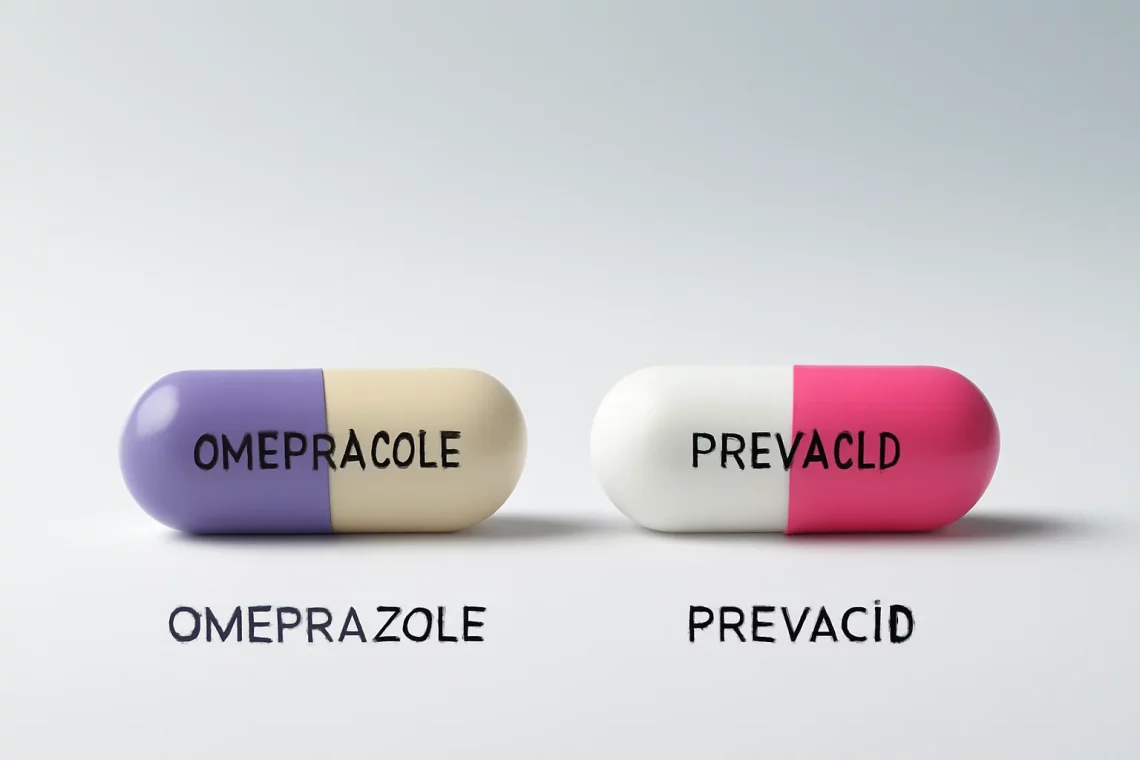-
Ranitidine vs Famotidine: Which Heartburn Relief is Better?
Ranitidine and famotidine are both medications commonly used to treat conditions related to excessive stomach acid. They belong to a class of drugs known as histamine-2 (H2) blockers, which work by reducing the amount of acid produced by the stomach. Understanding these medications and their differences can be crucial for individuals dealing with acid-related disorders, such as gastroesophageal reflux disease (GERD), peptic ulcers, and Zollinger-Ellison syndrome. As the prevalence of acid-related conditions continues to rise, it is essential for patients and healthcare providers to be informed about the available treatment options. While both ranitidine and famotidine are effective in managing these conditions, they differ in various aspects, including their mechanisms…
-
Ranitidine vs Famotidine: Which Antacid is Right for You?
Ranitidine and famotidine are two widely used medications in the realm of gastrointestinal health, primarily for their ability to reduce stomach acid production. As prevalent as heartburn and gastroesophageal reflux disease (GERD) are in modern society, the need for effective treatment options has led to the popularity of these drugs. Understanding the nuances between ranitidine and famotidine, their mechanisms of action, potential side effects, and other factors can be crucial for individuals seeking relief from acid-related disorders. Both ranitidine and famotidine belong to a class of medications known as histamine H2-receptor antagonists, which work by blocking histamine receptors in the stomach lining, thus reducing acid secretion. Despite their similar purpose,…
-
Omeprazole vs Esomeprazole: Which Is Right for Your Treatment?
Omeprazole and esomeprazole are two widely used medications that belong to a class known as proton pump inhibitors (PPIs). These drugs are primarily employed to treat conditions related to excessive stomach acid, such as gastroesophageal reflux disease (GERD), peptic ulcers, and Zollinger-Ellison syndrome. The growing prevalence of acid-related disorders has led to an increased interest in these medications, prompting both healthcare providers and patients to explore their options for effective treatment. Understanding the differences and similarities between omeprazole and esomeprazole is essential for making informed decisions about acid-reducing therapies. While both medications aim to alleviate symptoms associated with acid overproduction, their chemical structures, pharmacokinetics, and side effect profiles can influence…
-
Omeprazole vs Esomeprazole: Which Is Right for Your Treatment?
Omeprazole and esomeprazole are two widely used medications that belong to a class of drugs known as proton pump inhibitors (PPIs). These medications play a crucial role in managing conditions related to excessive stomach acid production, such as gastroesophageal reflux disease (GERD), peptic ulcers, and Zollinger-Ellison syndrome. While both drugs serve a similar purpose, they differ in their chemical structure, effectiveness, and side effects, leading many patients and healthcare providers to weigh the benefits of one over the other. Understanding the nuances between omeprazole and esomeprazole is essential for making informed decisions about treatment options. As patients seek relief from their symptoms, it’s important to consider factors such as dosage,…
-
Omeprazole vs Rabeprazole: A Comprehensive Comparison of Two PPIs
Omeprazole and rabeprazole are two medications that belong to a class of drugs known as proton pump inhibitors (PPIs). These medications are widely used to treat various gastrointestinal disorders, primarily by reducing the production of stomach acid. For many individuals suffering from conditions such as gastroesophageal reflux disease (GERD), peptic ulcers, or Zollinger-Ellison syndrome, PPIs provide significant relief by alleviating symptoms and promoting healing of the esophagus and stomach lining. Despite their similarities in action, omeprazole and rabeprazole have distinct characteristics that may influence a physician’s decision when prescribing these medications. Factors such as efficacy, side effects, drug interactions, and patient-specific considerations can all play a role in determining which…
-
Pantoprazole vs Lansoprazole Which is Better for Acid Reflux Treatment
Pantoprazole and lansoprazole are two widely used medications belonging to a class of drugs known as proton pump inhibitors (PPIs). These medications play a crucial role in managing conditions associated with excessive stomach acid production, such as gastroesophageal reflux disease (GERD), peptic ulcers, and Zollinger-Ellison syndrome. By effectively reducing the amount of acid produced by the stomach, pantoprazole and lansoprazole can alleviate symptoms such as heartburn, regurgitation, and discomfort associated with these conditions. The mechanism of action for both pantoprazole and lansoprazole involves the inhibition of the proton pump in the gastric lining, which is responsible for the secretion of gastric acid. Despite their similar functions, there are distinct differences…
-
Pantoprazole vs Lansoprazole: Which Proton Pump Inhibitor is Better?
In recent years, the prevalence of gastrointestinal disorders has increased, leading to a greater need for effective treatments. Among these treatments, proton pump inhibitors (PPIs) have gained popularity for their ability to reduce stomach acid production. Two of the most commonly prescribed PPIs are pantoprazole and lansoprazole. Both medications are effective in treating conditions such as gastroesophageal reflux disease (GERD) and peptic ulcers, but they have different profiles in terms of efficacy, side effects, and usage. Understanding the differences and similarities between these two medications can help patients and healthcare providers make informed decisions regarding treatment options. As more individuals seek relief from acid-related disorders, the choice between pantoprazole and…
-
Esomeprazole vs Omeprazole: Which is Right for You?
Esomeprazole and omeprazole are both medications that belong to a class known as proton pump inhibitors (PPIs). These drugs are primarily used to treat conditions related to excessive stomach acid, such as gastroesophageal reflux disease (GERD), peptic ulcers, and Zollinger-Ellison syndrome. With the increasing prevalence of acid-related disorders, the importance of understanding these medications has grown significantly. Esomeprazole, often marketed under the brand name Nexium, is a specific isomer of omeprazole, which means that it has a slightly different chemical structure and may offer distinct pharmacological properties. Both medications work by blocking the proton pump in the stomach lining, effectively reducing the production of gastric acid. As a result, they…
-
Famotidine vs Ranitidine: Which Antacid is Right for You?
Famotidine and ranitidine are two medications commonly used to treat conditions related to excess stomach acid, such as gastroesophageal reflux disease (GERD), peptic ulcers, and gastritis. Both belong to a class of drugs known as H2 blockers, which work by inhibiting the action of histamine on the stomach’s H2 receptors. This action ultimately decreases the amount of acid produced by the stomach. Understanding the differences and similarities between these two medications can be crucial for patients dealing with acid-related disorders. While both famotidine and ranitidine serve similar purposes, they have distinct properties, side effects, and usage guidelines. The choice between the two might depend on various factors, including individual health…
-
Omeprazole vs Prevacid: Which Proton Pump Inhibitor Is Better?
Omeprazole and Prevacid are both widely used medications in the realm of gastrointestinal health, primarily known for their roles as proton pump inhibitors (PPIs). These medications are designed to reduce the production of stomach acid, providing relief for various conditions such as gastroesophageal reflux disease (GERD), peptic ulcers, and Zollinger-Ellison syndrome. As the prevalence of acid-related disorders continues to rise, understanding the differences and similarities between these two drugs becomes increasingly essential for patients and healthcare providers alike. Proton pump inhibitors work by blocking the proton pumps in the stomach lining, leading to decreased acid secretion. This reduction in acid can alleviate symptoms of heartburn, allow ulcers to heal, and…
